Tattoo Flu: Symptoms, Causes, And How To Get Rid Of It
Hydrate, rest, and eat healthy to treat the flu-like symptoms after tattooing.

Image: Shutterstock
Tattooing is a medium of creative self-expression that requires ink to be deposited into the dermis layer of your skin to tell the story you desire. However, alongside the artistry and beauty, it can also trigger specific bodily reactions, and one such response is often referred to as “tattoo flu.” This involves a set of symptoms that some individuals experience after getting inked, that are akin to the common flu. From fever to nausea and body aches, the tattoo flu symptoms can vary from person to person. But why does your body react this way? Is it an immune response because you are not healthy or is your tattoo infected? Fret not! We can help you identify the signs and dispel your worries.
This article explores everything you need to know about tattoo flu, including why you get it, how to treat it, as well as ways to prevent it. Keep reading to learn more.
In This Article
What Is Tattoo Flu?

Tattoo flu is a common natural body response to getting your skin repeatedly pricked by a needle, i.e., the tattooing process. After getting a tattoo, it is common for your body to feel a bit under the weather for a couple of days. You might experience symptoms similar to a cold or flu, such as feeling tired, achy, or showing a mild fever. The stress of the tattooing process can impact your immune system, making you feel unwell. However, it is a short-term immune response that may ease within a few days as your body recovers from the stress of the tattoo session.
If you are wondering why tattooing is making you feel sick, and whether it is because of your low immunity, worry not, for it is not a serious condition. In fact, it may not even happen to everyone. Read on to know why you may experience flu-like symptoms after the process of tattooing.
Key Takeaways
- Tattoo flu is the body’s response to tattooing stress. As the name suggests, the condition presents flu-like symptoms that typically last a couple of days during the healing process.
- Stress triggers the immune system, leading to symptoms like fatigue, mild fever, and body aches.
- You can manage the symptoms through resting, optimal hydration, taking pain relievers, and following proper aftercare instructions.
- If symptoms worsen or the skin art shows unusual reactions, you may seek medical advice for proper healing and avoiding complications.
What Causes Tattoo Flu?
Tattoo flu may occur because getting inked puts stress on your body. Overall, your skin may look fine, and you might not have experienced too much pain during the process. Hence, your immune system does what it needs to do – defend. In simple terms, since tattooing is essentially wounding your body, the immune system gears up to start with the healing process, causing flu-like symptoms as a result of the natural defense of your body. When you experience pain, it triggers your body’s hormone system, specifically the adrenal glands. In response to the pain signal, these glands release hormones with anti-inflammatory and regenerative actions (1). Hence, the repeated pricks of the tattoo gun may result in high levels of adrenaline being produced in response to it, while the immune system releases leukocytes. i.e., white blood cells to promote tissue recovery, suppress inflammation, and reduce pain (2). When the leukocytes start functioning, the immune system moves into stress mode, increasing the risk of feeling sick.
Therefore, in the early stages of the tattoo healing process, some people might feel like they have the flu, because their immune system reacts strongly to the stress caused by the tattooing process. However, the symptoms of this immune system response may vary for each individual. Keep scrolling to know more about these varying signs.
Tattoo Flu Symptoms

The symptoms of tattoo flu can be similar to the ordinary flu. The most common symptoms include:
- Body aches
- Soreness
- Mild fever
- Fatigue
- Chills
- Dizziness
- Nausea
- Diarrhea
- Headache
- Sensitivity to light
These flu-like symptoms, especially mild fever, chills, or mild discomfort, typically arise within hours after tattooing, or may even appear during the tattoo session. These are natural responses and can be considered signs of tattoo healing. However, if these symptoms intensify and you notice pus, blood, or any unusual oozing from around the tattooed area, it might indicate a tattoo infection, and you should seek immediate medical attention. Similarly, any rashes, redness, itching, or pimples appearing around the new tattoo could be due to an allergy to tattoo ink. In such cases, you should consult your healthcare provider immediately.
 Quick Tip
Quick TipIn normal cases, the symptoms do not last long, and it is not necessary to consult a doctor. Read on to find out whether the duration of these symptoms is the same as the general flu.
How Long Does Tattoo Flu Last?
The tattoo flu does not last for as long as the actual flu, and the symptoms may subside after 24 to 48 hours. However, it may also depend on other factors like your health condition, immune system, the size of the tattoo, the placement of the tattoo, and the healing needed. Since these factors vary from person to person, the flu may last longer for some while it may not even occur for others.
While rest and proper care of your tattoo can help get rid of this temporary sickness, keep reading to find out what more to do for these flu-like symptoms, and how to improve your condition faster.
How To Manage A Tattoo Flu?
The flu symptoms may make you agitated but there are many ways to manage them.
- Try natural remedies like using a cold compress and soothing balms with aloe vera or coconut oil to help reduce inflammation.
- Certain dietary choices, such as consuming vitamin C-rich foods may help boost your immune system. Eating protein rich food helps with tissue repair as well.
- Try a steam inhalation to soothe any nasal congestion.
- If the flu does not seem to be reducing, please consult a doctor for a better treatment course.
If you want to get rid of the tattoo flu, there are a few ways to help that. Read on!
How To Get Rid Of Tattoo Flu

Your symptoms should subside within a couple of days, as your body’s immune system settles and focuses on the proper healing of the tattooed skin. Meanwhile, you can manage the symptoms by doing the following:
- Ensuring Proper Hydration And Rest: Get enough rest and sleep for around 7-8 hours till your actual skin art heals. Also, drink plenty of water and keep yourself hydrated from within.
- Opt For Over-The-Counter Pain Relievers: If the discomfort persists and you experience severe pain, you may take pain relievers like acetaminophen or ibuprofen.
- Avoid Intense Physical Activities: Make sure you give enough time for proper healing of your fresh tattoo by avoiding intense exercises and strenuous activities that might affect the tattooed skin.
- Follow Proper Tattoo Aftercare: Tattoo artists provide guidelines for proper aftercare that need to be followed without fail. These usually include keeping the tattoo clean, applying healing ointments, moisturizing it regularly, and avoiding exposure to direct sunlight or water during the healing stage.
Cassandra, a lifestyle blogger, shared her tattooing experience and how she managed the tattoo flu and healing process, where the pain lasted a few days. In her blog, she writes, “I had a fever and chills the first days with it, and that led me to believe I had an infection. I emailed AJ [the tattoo artist], and was reassured with his response. Finally, I found the feather healing; that is, it started to scab over (i).” She kept her symptoms at bay with regular moisturization and pain relief tablets.
Proper aftercare practices help speed up the recovery time of the tattooed skin, which in turn aids in treating tattoo flu. Nevertheless, there are certain things you need to be careful about to avoid getting the tattoo flu that are listed below. Continue reading to know more.
How To Prevent Tattoo Flu

Taking proper precautions before tattoo appointments may help minimize flu symptoms associated with the healing skin. Some pointers to keep in mind before the tattoo session are as follows:
- Always choose a reputable tattoo artist and a licensed tattoo establishment.
- Get an allergy test done before the session to ascertain whether you may have an allergic reaction to the tattoo ink.
- Drink lots of water on the day of your tattooing, and keep a bottle of water on you 2 to 3 days after the tattoo for on-the-go hydration.
- Eat nutritious and healthy meals for several days before and after getting inked.
- Go to the tattoo parlor only after eating a full meal and keep a snack handy if the session is going to be long.
- Do not use any blood-thinning drug, alcohol, or aspirin during and after the tattoo sessions.
- Do some meditation or stress-relieving activities that you are comfortable with to reduce anxiety during the tattoo appointment.
- Do not indulge in any strenuous activities before or after the tattooing process and let the muscles rest before the session.
 Pro Tip
Pro TipFollowing these precautions may help you minimize the symptoms of this temporary sickness and speed up the tattoo healing process. However, if you still experience persistent discomfort or mild fever, it may be a case of improper healing, which can worsen your condition. Hence, keep reading to know when to seek medical care.
When To See A Doctor

While tattoo flu symptoms are generally mild, it is crucial to recognize when they may indicate a more serious issue that requires professional consultation. This is particularly if symptoms worsen or persist. Improper aftercare practices may increase the risk of infections, leading to allergic reactions, tattoo scarring, or more adverse conditions. If you experience anything more than normal healing discomfort, such as raised body temperature and chills, pus or blood oozing from the tattoo, a runny nose, or head or chest congestion, it is best to consult a healthcare professional. Also, unexpected skin reactions like tattoo rashes, redness, itchiness, and bumps may warrant doctor consultation.
Tattoo flu is a natural body response to the stress of tattooing. After getting inked, it is normal to experience symptoms like fatigue, mild fever, and body aches as a result of it. While these symptoms usually last around 24 to 48 hours, and often improve with rest, hydration, and following proper aftercare instructions, it is crucial to be aware of signs that might indicate an infected tattoo. Look out for symptoms such as pus formation or rashes around the tattoo. Consider seeking medical care if symptoms worsen or unusual reactions occur. Precautions before and after getting a tattoo, such as choosing a reputable artist, staying hydrated, and avoiding strenuous activities, can help minimize discomfort and ensure safety on all counts. All in all, do not let the fear of tattoo flu keep you from getting the body art of your dreams.
Frequently Asked Questions
Is tattoo flu contagious?
No, tattoo flu is not contagious. It does not pass from person to person, like the common cold or flu.
What can happen if you get a tattoo while sick?
Getting a tattoo while sick can slow down healing and increase infection risks, because your immune system is already working hard. It is better to wait until you are fully recovered for a smoother tattoo healing process.
Can you get a viral infection from a tattoo?
Yes, it is possible to get a viral infection from a tattoo if proper hygiene and sterilization practices are not followed during and after the tattooing process (3).
Illustration: Tattoo Flu: Symptoms, Causes, And How To Get Rid Of It
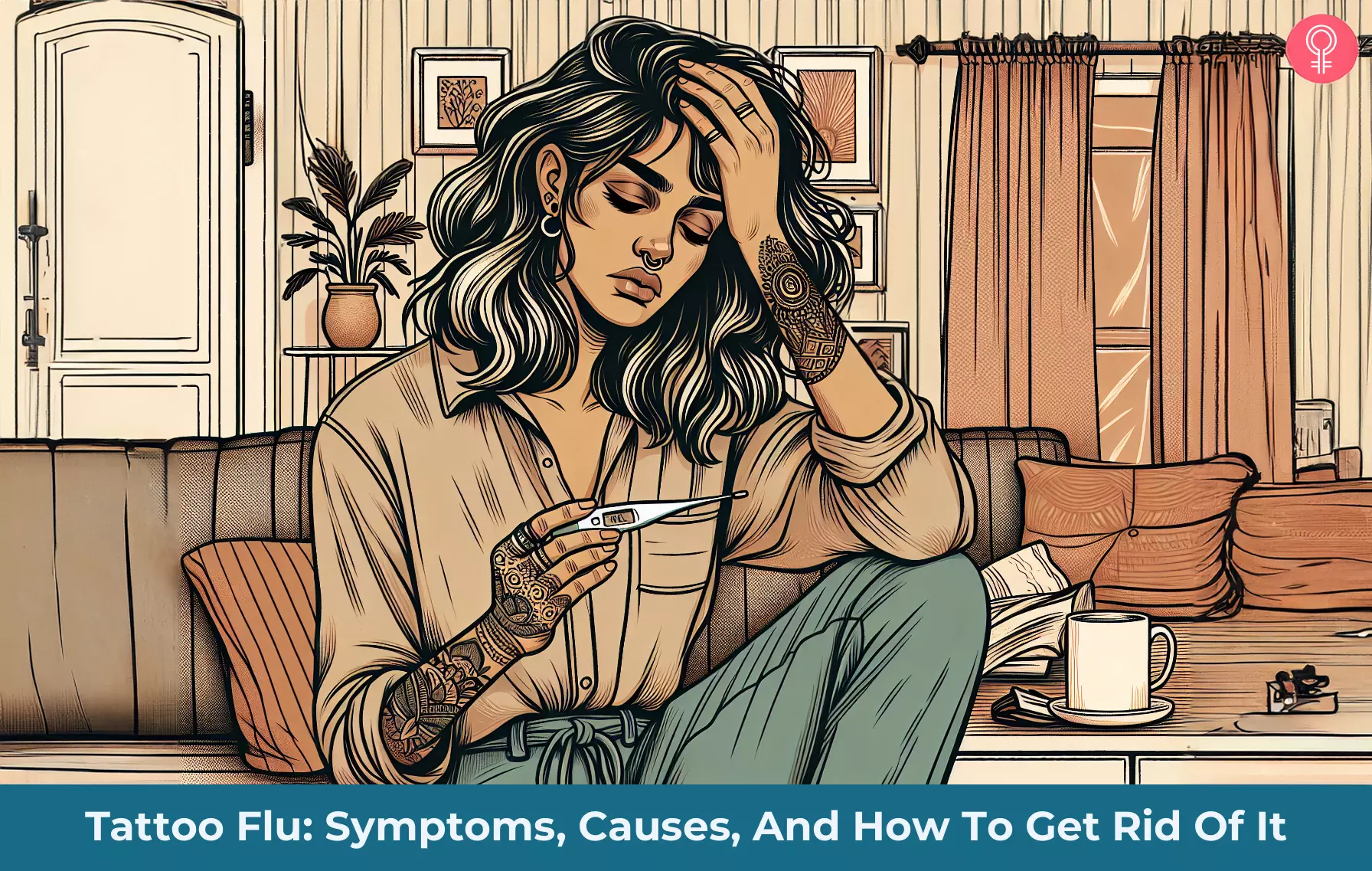
Image: Dall·E/StyleCraze Design Team
Experiencing a fever after getting a tattoo is common, and it is important not to panic as the reaction is typical of the body’s healing response. Watch this video to learn more about dealing with tattoo flu.
Personal Experience: Source
StyleCraze's articles are interwoven with authentic personal narratives that provide depth and resonance to our content. Below are the sources of the personal accounts referenced in this article.
(i) Tattoo Experiencehttps://cjousnamer.wordpress.com/2012/01/13/tattoo-experience-4-part-3/
References
Articles on StyleCraze are backed by verified information from peer-reviewed and academic research papers, reputed organizations, research institutions, and medical associations to ensure accuracy and relevance. Read our editorial policy to learn more.
- The physiologic effects of pain on the endocrine system
https://www.ncbi.nlm.nih.gov/pmc/articles/PMC4107914/ - Interactions between the immune and nervous systems in pain
https://www.ncbi.nlm.nih.gov/pmc/articles/PMC3077564/ - Tattoo-associated viral infections: A review
https://pubmed.ncbi.nlm.nih.gov/34720594/
Read full bio of Anastasiia Gatsko
Read full bio of Shreya Mukherjee
Read full bio of Madhumati Chowdhury
Read full bio of Gazala Firdos Ansari






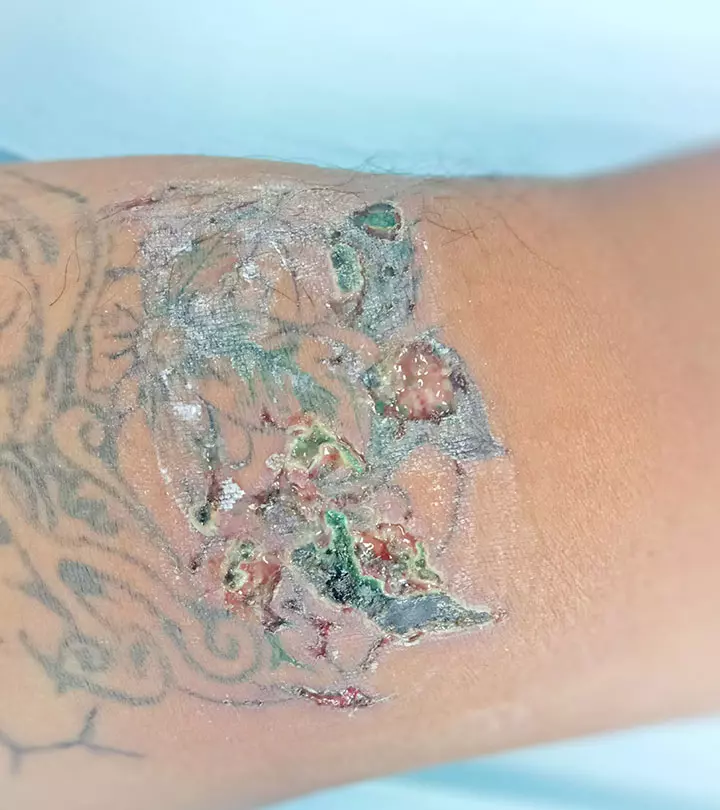


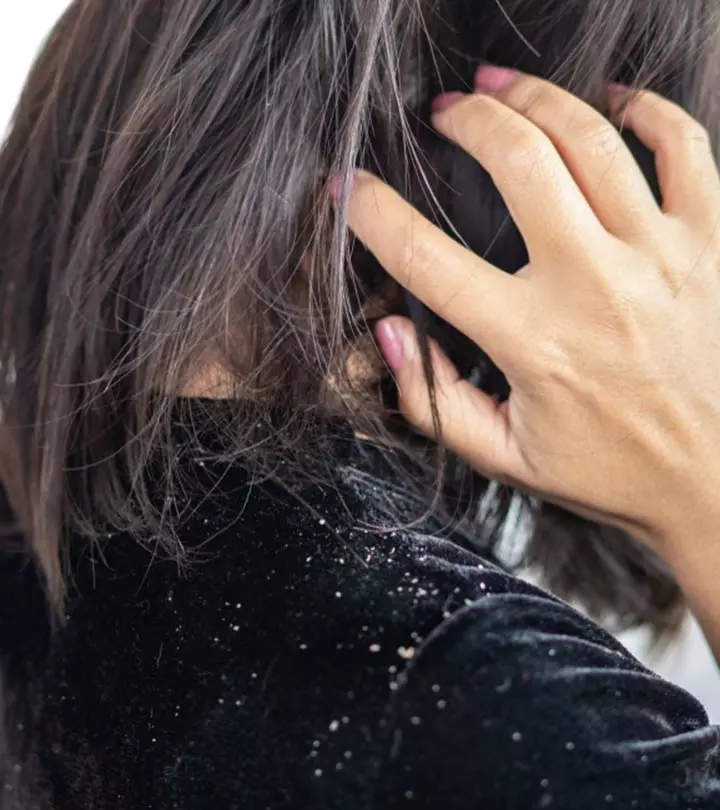







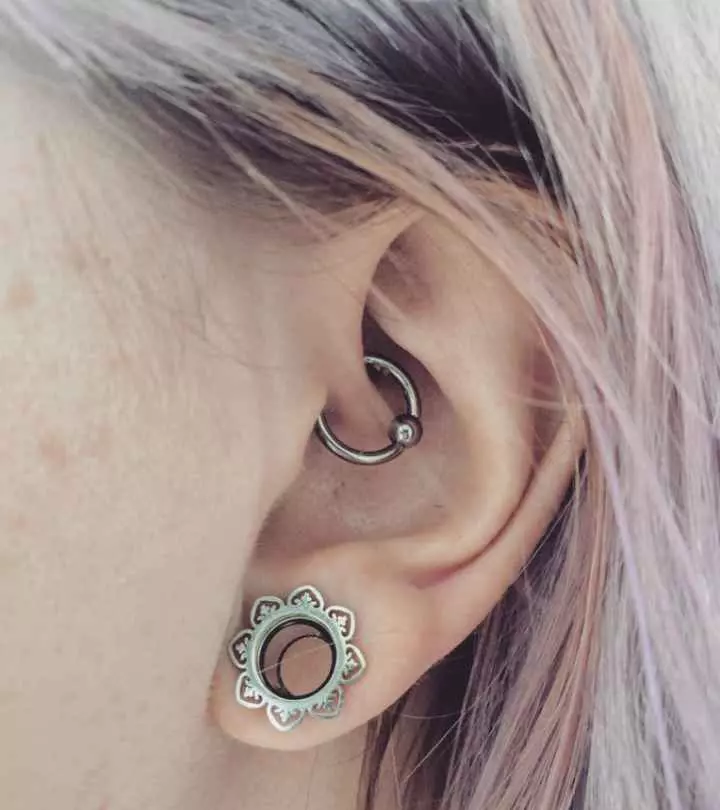
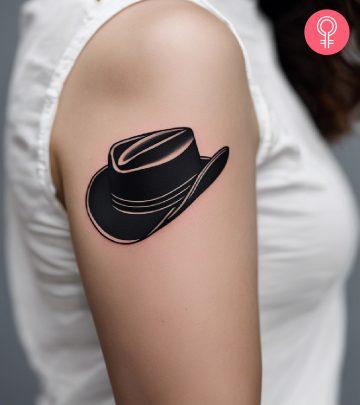






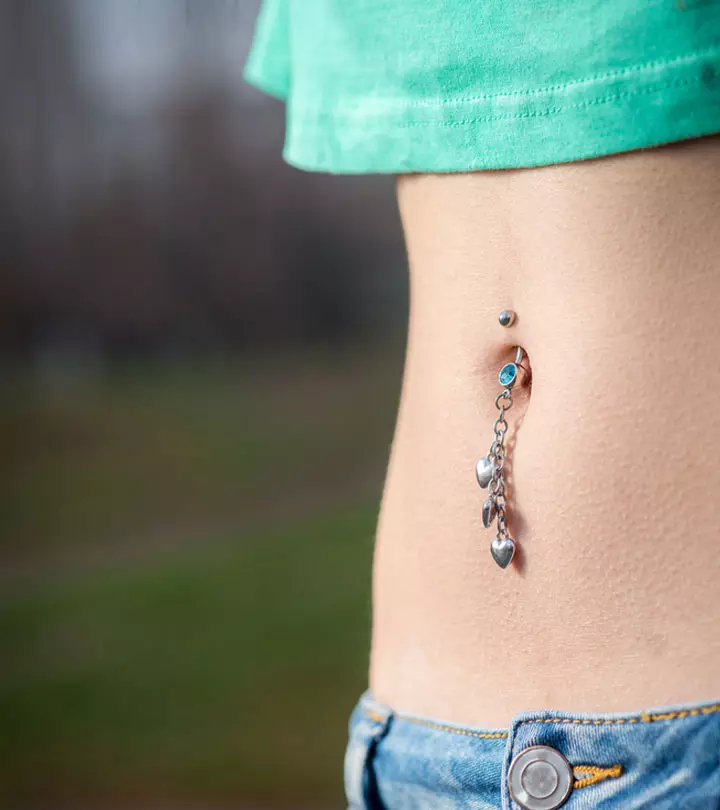

Community Experiences
Join the conversation and become a part of our empowering community! Share your stories, experiences, and insights to connect with other beauty, lifestyle, and health enthusiasts.